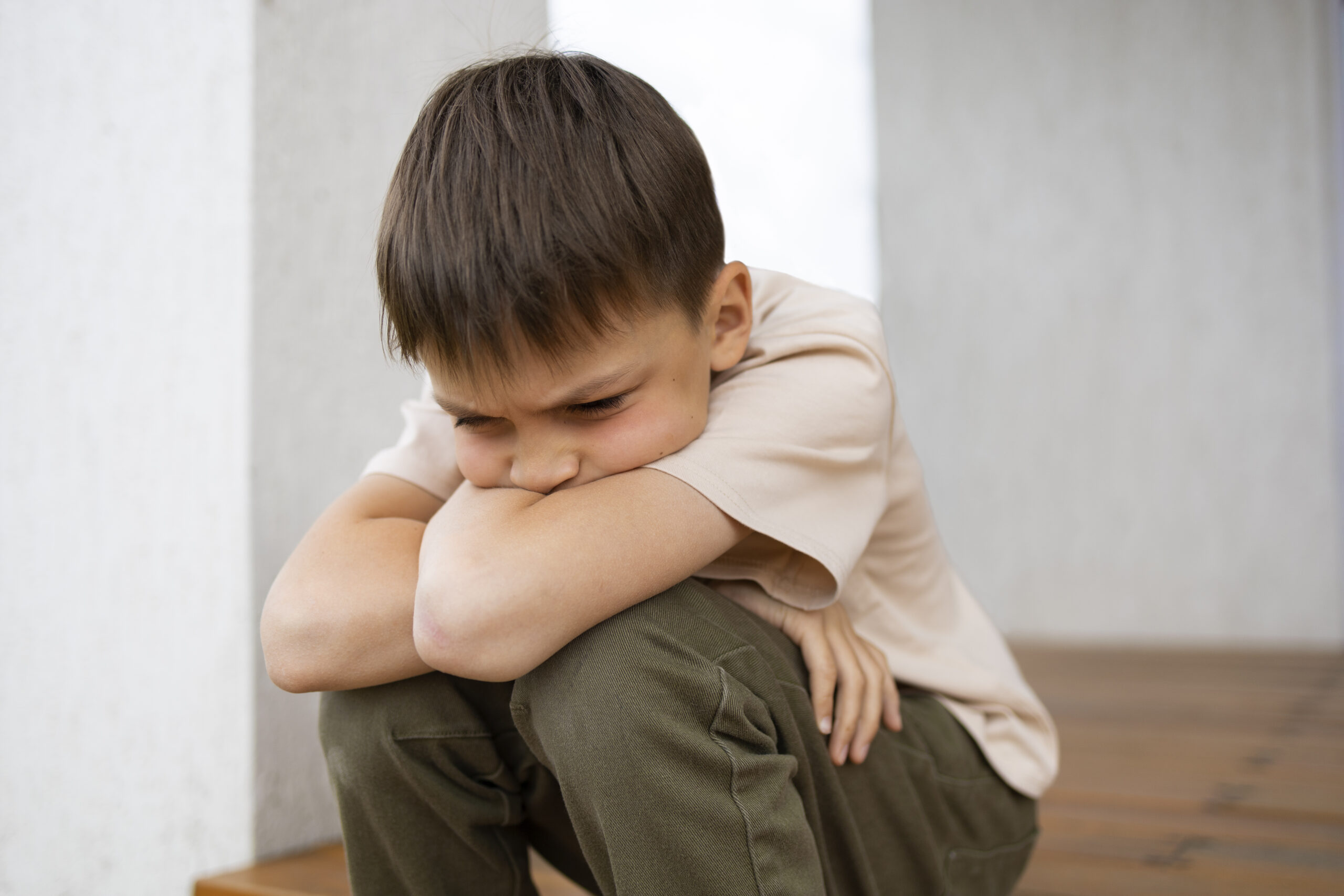Supporting children with anxiety begins with understanding how it shows up in daily life. Anxiety can affect kids in quiet, often misunderstood ways. With the right guidance, parents and caregivers can play a powerful role in helping children feel safe, seen, and supported.
Children don’t always express anxiety the way adults do. What may seem like defiance, moodiness, or withdrawal is often a signal that they’re feeling overwhelmed. Recognizing these patterns early can lead to more effective, compassionate support.
Understanding Anxiety in Children
Anxiety is one of the most common mental health challenges children face today. While occasional worry is part of growing up, persistent or intense anxiety can interfere with a child’s daily functioning, emotional well-being, and relationships. Children may not always have the words to describe how they’re feeling, which makes it even more important for parents and caregivers to understand the signs and offer support early on.
Anxiety in children can manifest in different ways—some may show physical symptoms like stomachaches or headaches, while others might become irritable, withdrawn, or overly clingy. Recognizing that these behaviors may be rooted in anxiety is the first step toward helping them navigate their emotions with confidence and resilience.
Common Triggers and How to Identify Them
Anxiety can be triggered by a wide range of experiences. Understanding what sets off your child’s anxious responses can help you create a more supportive environment. Some of the most common anxiety triggers in children include:
- Changes in routine (starting school, moving, parental separation)
- Academic pressure or fear of failure
- Social situations or performance-based settings
- Traumatic experiences or exposure to conflict
- Sensory overload, particularly for neurodivergent children
Parents may notice their child avoiding certain activities, asking repeated reassurance questions, or expressing physical symptoms before stressful events. Journaling or tracking anxious moments over time can help identify patterns and provide insight into possible triggers.
Everyday Strategies to Help Your Child Cope
Supporting a child with anxiety doesn’t require perfection—it simply requires consistency, compassion, and a few mindful tools. While every child is different, the following approaches have been shown to help:
- Create a predictable routine: Structure and clear expectations reduce uncertainty and can ease anxiety.
- Model calm behavior: Children are highly attuned to parental cues. When you stay grounded, it helps them do the same.
- Encourage open communication: Let your child know it’s okay to talk about their fears, even if you don’t have all the answers.
- Validate emotions: Avoid dismissing or minimizing their feelings. Phrases like “That sounds really hard” or “I hear you” go a long way.
- Use grounding techniques: Breathing exercises, mindfulness games, and sensory objects can help kids self-regulate in moments of distress.
Above all, respond with patience. Reassuring your child that they’re safe, loved, and not alone can have a lasting impact on how they relate to their anxiety long-term.
When to Consider Professional Therapy
While parental support is incredibly valuable, there are times when therapy is the best next step. If your child’s anxiety begins to interfere with daily routines—school attendance, sleep, friendships, or self-esteem—it may be time to consult with a licensed mental health professional.
A child therapist can work with your family to identify underlying patterns, teach coping strategies, and build emotional resilience. At The Psyched Group, our therapists often use evidence-based approaches like Cognitive Behavioral Therapy (CBT), play therapy, and mindfulness to help children navigate anxiety in developmentally appropriate ways.
Therapy not only supports the child but also gives parents the tools to reinforce these techniques at home, strengthening the parent-child bond in the process.
Supporting Yourself as a Caregiver
Caring for a child with anxiety can be emotionally taxing. Parents often experience their own stress, worry, or guilt when trying to “get it right.” That’s why it’s equally important to tend to your own emotional needs as you support your child.
Ways to care for yourself as a caregiver include:
- Seeking out your own therapy or parenting support
- Setting realistic expectations for yourself
- Reaching out to other parents or support groups
- Practicing self-compassion when things feel hard
Children are incredibly intuitive. When they see you prioritizing your mental health, they learn that it’s safe and normal to do the same for themselves.
Helping Your Child Thrive—One Step at a Time
Anxiety doesn’t have to define your child’s experience. With the right tools and support, kids can learn to manage worries, build confidence, and feel more in control of their emotions. Early intervention makes a difference, and small daily efforts can create lasting change over time.
At The Psyched Group, we offer in-person sessions in East Bridgewater and Middleborough, MA, as well as online therapy throughout Massachusetts, Rhode Island, and New Hampshire.
Our therapists use evidence-based approaches like Cognitive Behavioral Therapy (CBT), play therapy, and mindfulness to help children manage anxiety and strengthen emotional resilience.
To learn more about how therapy can help with anxiety, visit our Anxiety Therapy and Child Therapy pages.
Find a Therapist to connect with a qualified provider who can help your child feel calmer, more confident, and supported.

